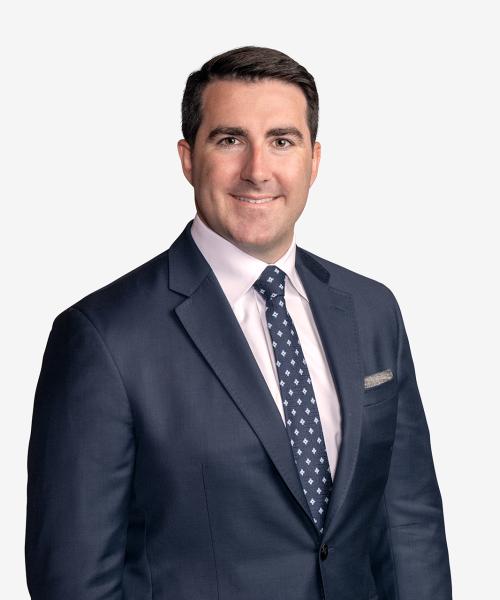Friday Enforcement Wrap: Coalition of Law Enforcement Agencies Tackle Opioid Crisis Via the False Claims Act
DOJ News
Dept. of Justice Attacks Opioid Crisis in Tennessee With Unique Approach
The US Department of Justice (DOJ) unsealed a civil complaint seeking temporary and permanent injunctions against, as well as payment of damages under the False Claims Act (FCA) from, two community pharmacies in Tennessee for their alleged role in the “improper distribution of controlled substances” and subsequent submission of false claims to Medicare and Medicaid. The complaint also names as defendants the majority owner and CEO of both pharmacies, the pharmacists-in-charge of both pharmacies, and a part-time pharmacist for violations of the Controlled Substances Act (CSA), state pharmacy law, and the FCA.
This action is significant because not only does it demonstrate the commitment of the DOJ to dedicate and coordinate the resources of the DOJ Civil Division, United States Attorneys, the Drug Enforcement Administration field divisions, and the Department of Health and Human Services Office of Inspector General to jointly battle the nation’s opioid crisis, but also alleges a direct connection between illegal or improper dispensing practices by pharmacies and individual pharmacists and the submission of claims to Federal healthcare programs that could result in FCA liability. Medicare generally only pays for drugs that are used for medically accepted indications and that are deemed “reasonable and necessary for diagnosis or treatment.” The complaint alleges that FCA liability can attach when a pharmacist or pharmacy engages in dispensing practices that violate the CSA and state pharmacy law resulting in a paid pharmacy claim that the Federal healthcare program otherwise would have denied, had Medicare known that the script was filled for an illegal purpose.
Read the DOJ press release here.
Genetic Testing Company Settles Allegations of FCA Violations for $1.99 Million
GenomeDx Biosciences Corp. (GenomeDx) agreed to pay the US government $1.99 million to settle allegations that it improperly billed and received payment from Medicare for genomic testing that did not comply with Medicare billing guidelines, thereby resulting in false claims. At issue was a genomic test known as “Decipher GC” used to measure the likelihood of prostate cancer recurrence after surgery. According to the complaint filed by two former employees of the company, GenomeDx knowingly submitted claims for payment of the test in violation of clear coverage guidelines set forth in a Local Coverage Determination established by a Medicare Administrative Contractor. The whistleblowers alleged that the claims submitted were “conducted without meeting the requirements necessary for health insurance coverage; not medically necessary; and/or were induced by offers of remuneration” in violation of the Anti-Kickback Statute.
Read the DOJ press release here.
Failure to Return Overpayments Results in Significant Financial Settlement
A now defunct medical practice in Mississippi, Jefferson Medical Associates, and an affiliated physician, settled a FCA investigation to the tune of nearly $820,000 for alleged failure to return overpayments received from Medicare and failure to provide appropriate medical documentation for the billing codes related to submitted claims. According to DOJ, both the practice and physician “provided assistance through voluntary disclosures to the US Attorney’s Office after they discovered through audits of patient files and claims data that Medicare had been overbilled for certain services.” The failure of a provider to report and return overpayments from Medicare within sixty (60) days of identifying the occurrence of the overpayment can subject the provider to FCA liability.
Read the DOJ press release here.
Litigation News
Update on Supreme Court Case Involving FCA Statute of Limitations
In a case analyzed previously by Arent Fox, the DOJ has filed an amicus brief with the United States Supreme Court advocating that whistleblower plaintiffs should be able to enjoy a recognized exception to the FCA statute of limitations period for cases in which the government has declined to intervene. Pursuant to Section 3731 of the FCA, an action must typically be brought within 6 years of the alleged violation. However, if “facts material to the right of action” were not known or reasonably should have been known “by the official of the United States charged with responsibility to act in the circumstances,” the FCA’s tolling provision states that the applicable timeframe can be extended to ten years. At issue in the current case is whether the extended 10-year period can be applied in whistleblower suits when the government has declined to intervene. The DOJ argues in their brief that “[n]othing in the legislative record suggests that Congress intended to shield wrongdoers from the tolling rule when the United States relies on a [whistleblower] to prosecute the action.” The case is Cochise Consultancy Inc. et al. v. US ex rel. Hunt, case number 18-315, in the Supreme Court of the United States, and oral argument is scheduled for March 19.
Eighth Circuit Reminds FCA Litigants of Pleading Requirements
The United States Court of Appeals for the Eighth Circuit upheld a district court ruling that dismissed all but one count of an FCA complaint filed by three emergency medical technicians (EMTs). The original FCA complaint (in which the government declined to intervene) alleged that the employer of the EMTs, Crawford County Memorial Hospital, submitted false claims for Medicare reimbursement and made false statements in order to get claims paid. The whistleblowers alleged that claims were submitted for inappropriate or unnecessary services; services were provided by individuals with false credentials; and were based upon false cost reports. The Court upheld the lower court’s decision to dismiss “the substantive FCA claims for failure to plead with particularity because the complaint did not set forth facts showing any false claims were submitted, or plead how the relators acquired this information.” The Court’s opinion serves as an instructive reminder of the unique and specific facts that must be pled in order to meet Rule 9(b) and the FCA’s requirements. The case is United States ex rel. Strubbe v. Crawford County Memorial Hospital, 2019 WL 512190, --- F.3d --- (8th Cir. 2019).
Insurance Coverage Not Triggered by FCA-Related Claims
A liability insurance company, StarStone Specialty Insurance Co. (StarStone), requested that the United States Court of Appeals for the Fourth Circuit uphold a lower court ruling on a motion for summary judgment from October 5, 2018 absolving StarStone from having to defend and indemnify nursing home Affinity Living Group (Affinity) from a $60 million FCA qui tam suit. The US District Court for the Middle District of North Carolina previously held that Affinity’s insurance policy issued by StarStone does not apply to qui tam cases, because the claims at issue “did not arise out of the rendering or failure to render medical professional services” and were instead based on false Medicaid billing practices. Affinity filed an appeal of the ruling in early 2019, prompting the reply brief from StarStone. The case is Affinity Living Group LLC et al. v. StarStone Specialty Insurance Co., case number 18-2376, in the United States Court of Appeals for the Fourth Circuit.
Contacts
- Related Industries
- Related Practices
-
Read Time
6Minutes





